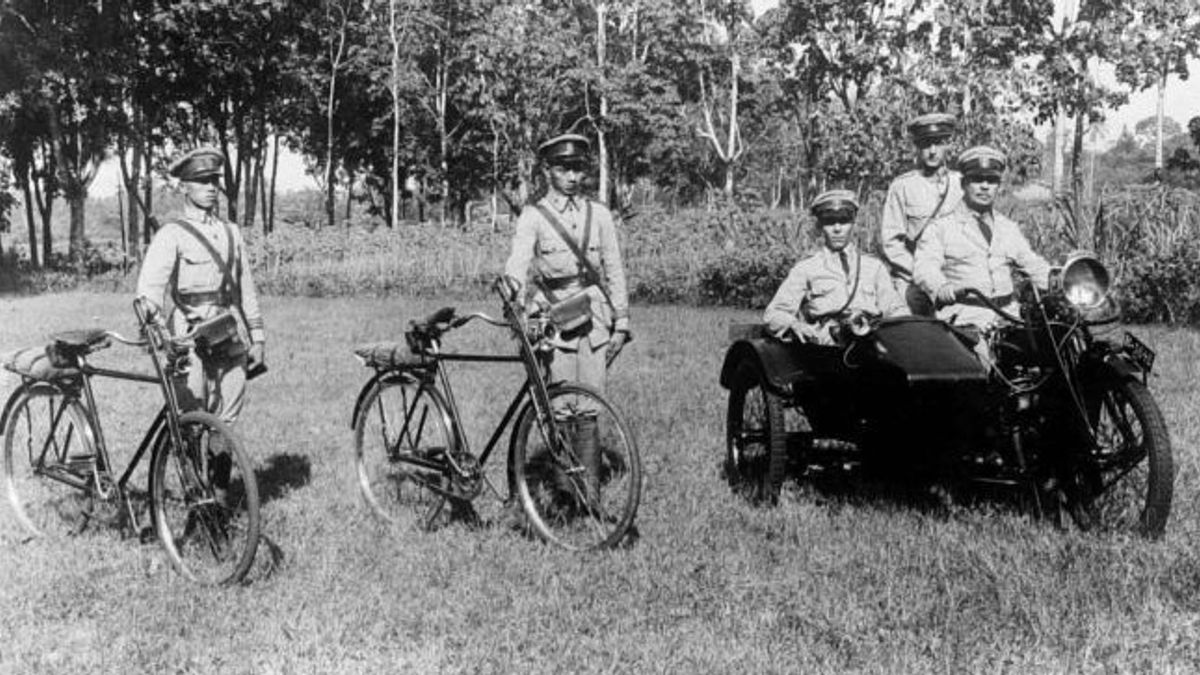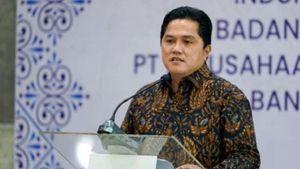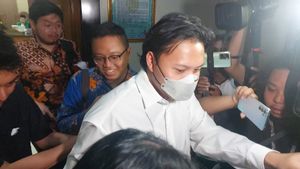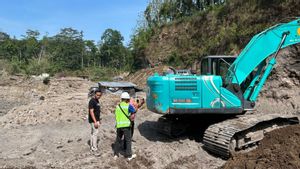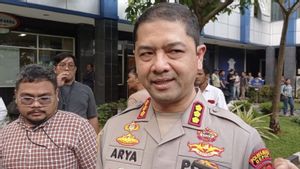JAKARTA - The era of Japanese colonialism is not always bad. The presence of Japan in the archipelago was able to provide new breaths for the bumiputras. The degree of the bumiputras was lifted because of it. Japan educates the natives a lot to be proud of their own abilities.
Andil Japan in shaping the mentality of the Bumiputra police candidate, for example. The Land of the Rising Sun was able to shape the skills of the Bumiputra police using firearms. This skill was of great benefit when Indonesia played the Revolutionary War (1945-1949).
Dutch colonialism in Indonesia brought nestapa to all natives. The Dutch treated the natives inhumane. They were not only treated like dairy cows, but also trampled on their pride.
Narratives are clearly stated because the status of the bumiputras is often equated with animals. Everything changed when Japan came. The Dutch colony faced Japan, which was superior in all fields. From troops to weapons.
Moreover, the presence of Japan is fully supported by the whole of the archipelago. Japan is considered a savior who was able to end the Dutch colonialism. Support for Japan is reasonable. The natives have not liked the Dutch colonial behavior for a long time.
The bumiputras at that time continued to receive inhumane treatment from the Dutch colonialists. Japan was also happy not to play with the support of the bumiputras. As a reward, Japan began to raise the status of the natives.
Europeans who used to be first-class people were forced to occupy the lowest strata in society. Europeans are being hunted. They forced their way into an internirism camp. Since then all white masters began to feel life like an colonized nation.
"The people hate the Dutch. Even more so because the Dutch ran away because they were castrated and let us be helpless. There was not a single Dutchman who tried to protect us or protect this country. They vowed to fight until the blood drop was complete, but in fact ran away from fear."
"The first factor that causes this spontaneous reception is the feeling of revenge against the Dutch late master, who has been defeated by a new conquest. If you hate someone, of course you will love the person who kicked him out. In addition, our arrogant and powerful white master is not shy about an Asian nation. No wonder the people welcome Japan as their liberator," explained Soekarno as written by Cindy Adams in Bung Karno's book: Connecting the Tongue of the Indonesian People (2000).
It could be Japanese power in the archipelago soon. However, the impact was extraordinary. Mainly, for the existence of police from the Bumiputra circle. Japan has never distinguished police education as happened during the Dutch colonial period.
All Bumiputra police candidates are given the right to attend their proper education. Japan instructed all of its instructors to be trained to provide serious teaching, including the matter of using firearms.
This condition is much different from the Dutch era. In the Dutch era, the prospective Bumiputra police officers who could use firearms were only limited circles. Most of them were not allowed to hold firearms. It is said that the Dutch were afraid because the Bumiputra police had the potential to perpetuate the rebellion.
Everything changed in the Japanese era. Anyone who wants to become a police officer, regarding the use of firearms is a mandatory lesson. The lesson is most useful for the natives. Hoegeng Imam Santoso (later became the National Police Chief who served from 1968 to 1971) became a witness.
He who took part in police education in Magelang witnessed for himself how advanced the Bumiputra police were in the Japanese colonial era. Even though he also admits that the Indonesian people are also miserable because of it. Hoegeng appreciated Japan's move which opened wide opportunities for Bumiputra police candidates to control the use of all kinds of firearms.
The impact is significant. Mainly, when Indonesia was independent and underwent the Revolutionary War (1945-1949). Many bumiputras chose to take up arms against the Dutch's intention to again colonize Indonesia.
Through this course, Hoegeng has a special appreciation of the Japanese education system which provides the widest opportunity for bumiputra youth to use weapons. An impossible thing happened in the Dutch era.
"Education related to weapons is perpetuated through the Indonesian Defenders Voluntary Army (Meta) institution, the Line of Japanese Assistant Soldiers (Heiho), the Gyugun (military officer) school, including the Police School. The ability to use weapons is very beneficial in the future, when the War of Independence (1945-1950) takes place," explained Aris Santoso and his friends in the book Hoegeng: Cooling Oase in the Middle of Corrupt Behavior of the Leaders of the Nation (2009).
The English, Chinese, Japanese, Arabic, and French versions are automatically generated by the AI. So there may still be inaccuracies in translating, please always see Indonesian as our main language. (system supported by DigitalSiber.id)
